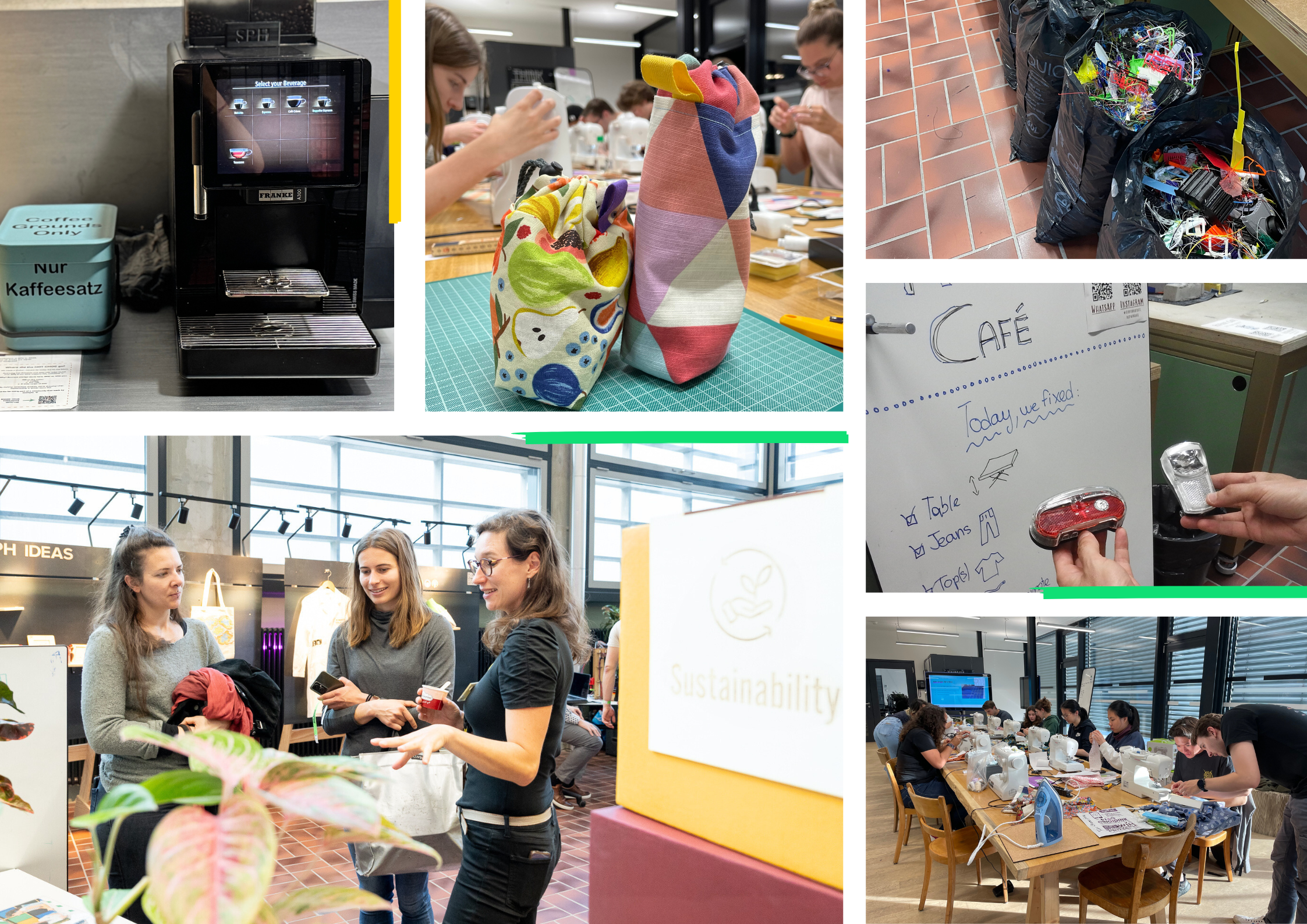
Turning big goals into everyday habits
Our actions reflect our vision for a more sustainable future. At the Student Project House at ETH Zurich, we understood that sustainability couldn’t just be a line in our vision statement, it had to be woven into our everyday decisions. So we started by doing some analysis and discovered the impact of our own carbon footprint, giving us a clear picture of where meaningful changes could begin.
We decided to make it simple and hands-on. Inspired by Coop’s "Taten statt Worte" (Actions, not words), we set ourselves a goal in January 2025: put at least 20 new sustainability initiatives into practice at SPH. Not a top-down masterplan, but small, creative steps driven by our staff, students, and broader community. Because in an educational space like ours, the biggest impact isn’t just cutting carbon or saving materials, it’s nurturing a sustainability mindset in future makers and innovators.
What we did: 5 practical ideas that changed how we work
Instead of long reports, we focused on embedding sustainability into the places people already learn, work, and socialise. Here are five examples you might steal for your own lab, makerspace, or team:
1. Teaching with a sustainability lens
Every introduction at our Makerspace — whether it’s learning to use 3D printers, Arduino boards, or even tie-dye techniques — now includes a quick slide on sustainability. We highlight the environmental footprint of electronics, the footprint of dyes, and how to prototype responsibly. This way, students see sustainability not as an add-on, but as part of good design from the start.
2. Adding a simple nudge on receipts
At our Makerspace checkout, every receipt now carries a tiny call-to-action reminding students to consider sustainability in their next project. It’s also advertising our reusable electronics corner, encouraging students to return pieces that are not or no longer needed, rather than them collecting dust on a shelf somewhere.
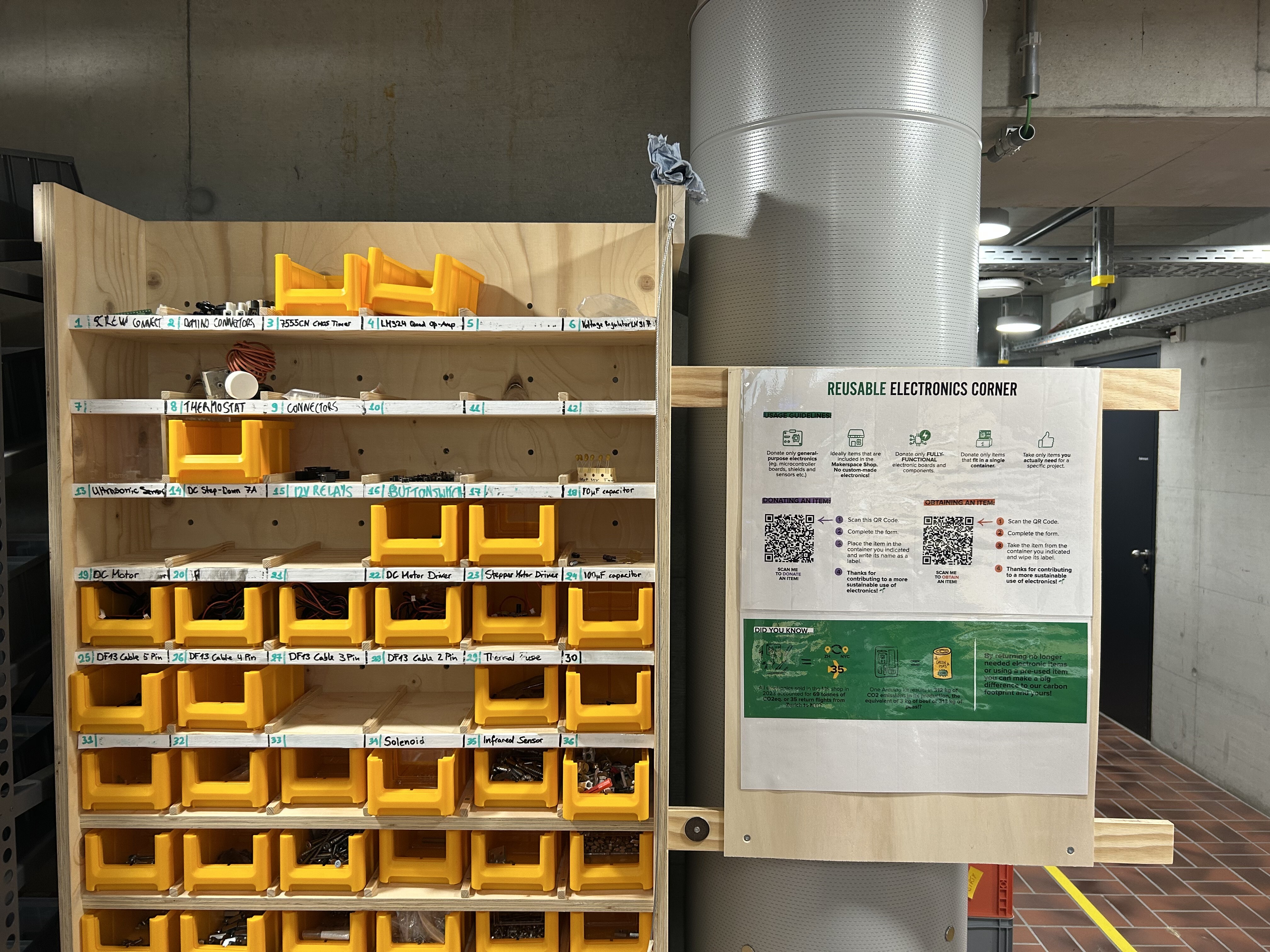
3. Supporting staff volunteering and growth
We introduced up to three days a year for staff to volunteer or train on sustainability and personal development. This gives our team time to contribute to causes they care about and brings fresh ideas back into SPH.
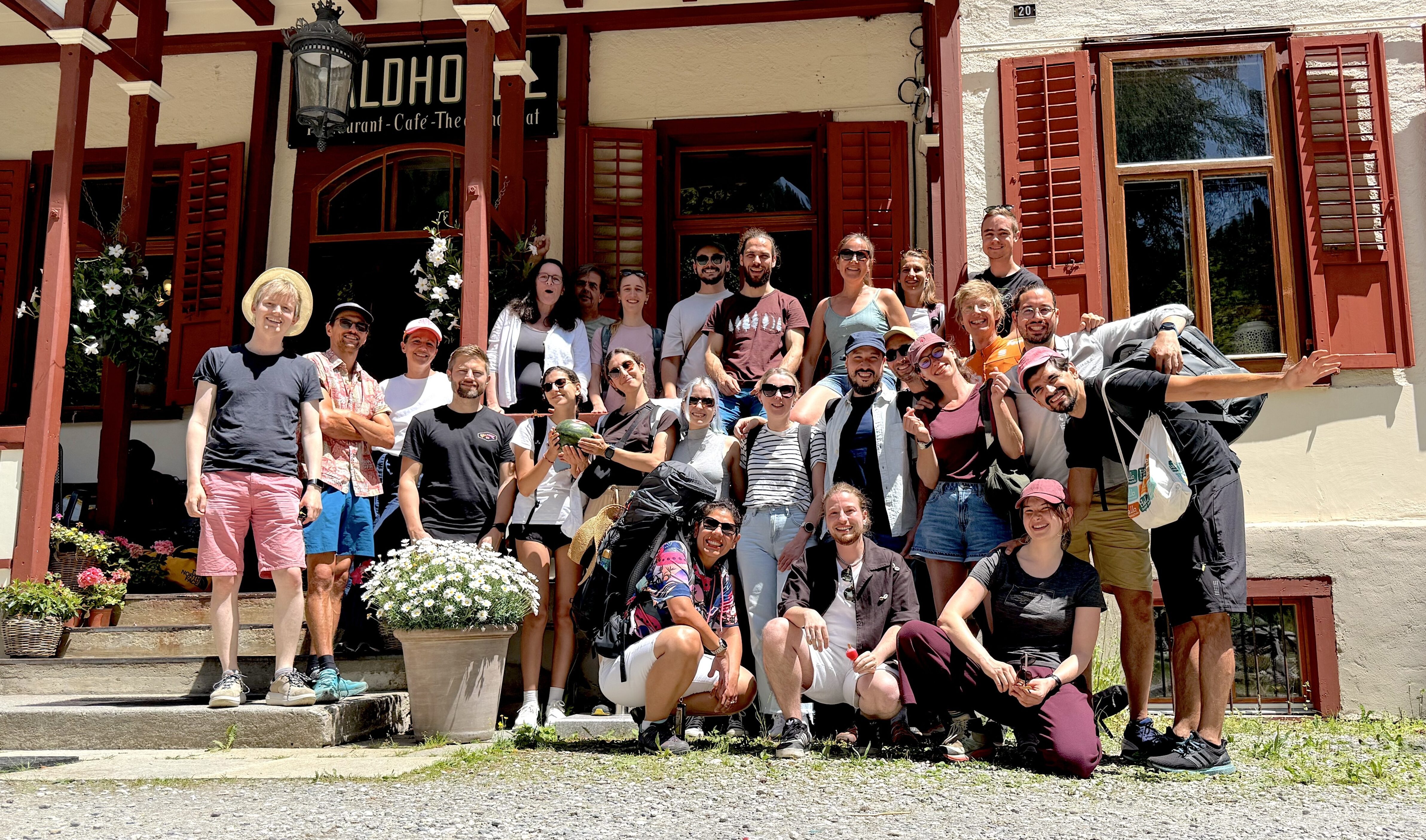
4. Rethinking waste: textiles, coffee, and laser-cut scraps
We set up easy textile drop-off points so old fabrics get reused in our creative stations instead of heading to the bin. Coffee grounds from our machines now go to compost or local gardens. And we’re experimenting with giving leftover laser-cut wood and acrylic a second life. Each small loop closed is one less piece of waste.
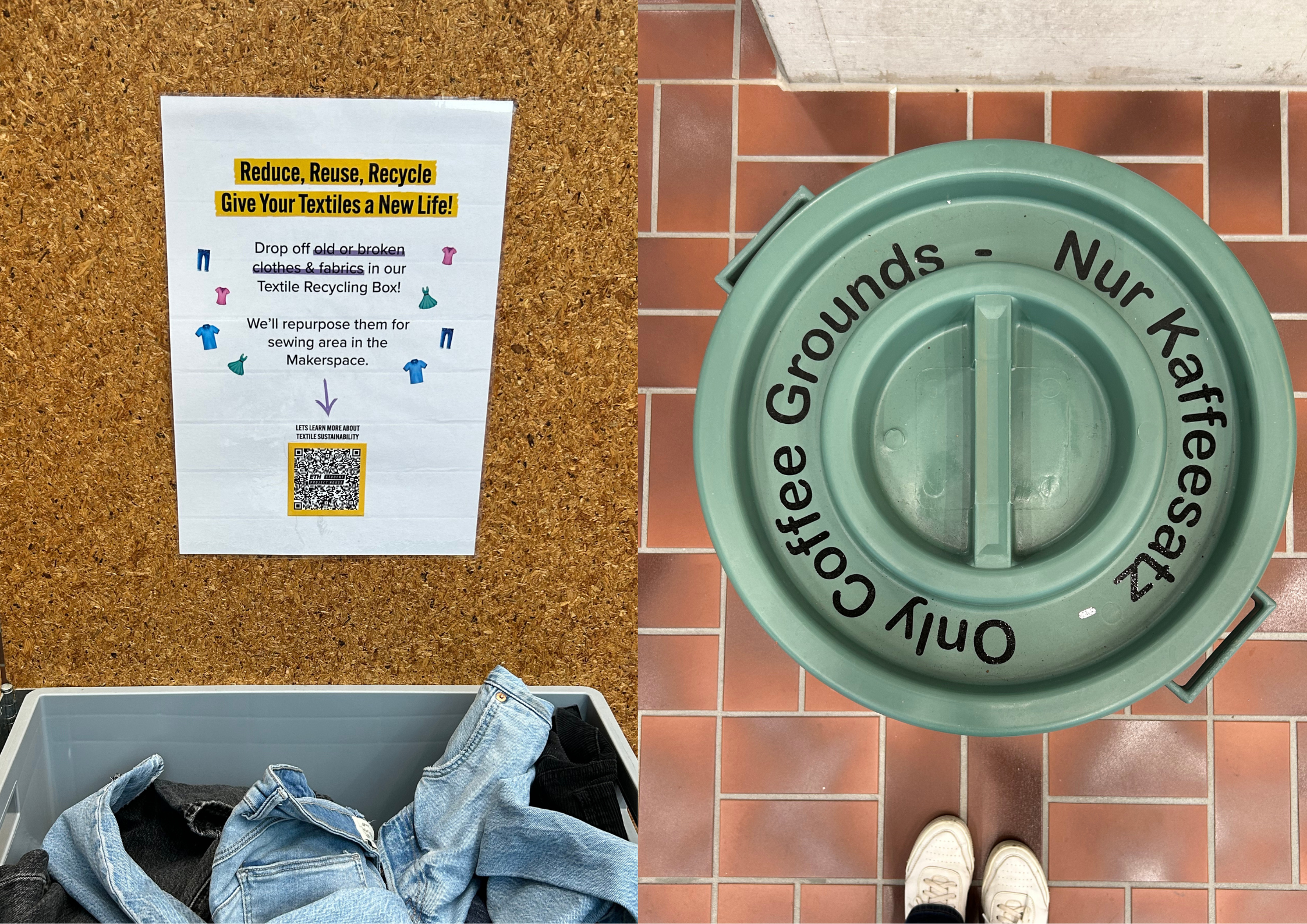
5. Life Science Lab:
Our Life Science Lab earned a GreenLab Bronze certification for advancing sustainable research. To reduce the heavy energy demands of autoclaving, we pool sterilization loads and run a single end-of-day cycle for all non-urgent needs. These straightforward measures keep essential processes efficient and less wasteful.
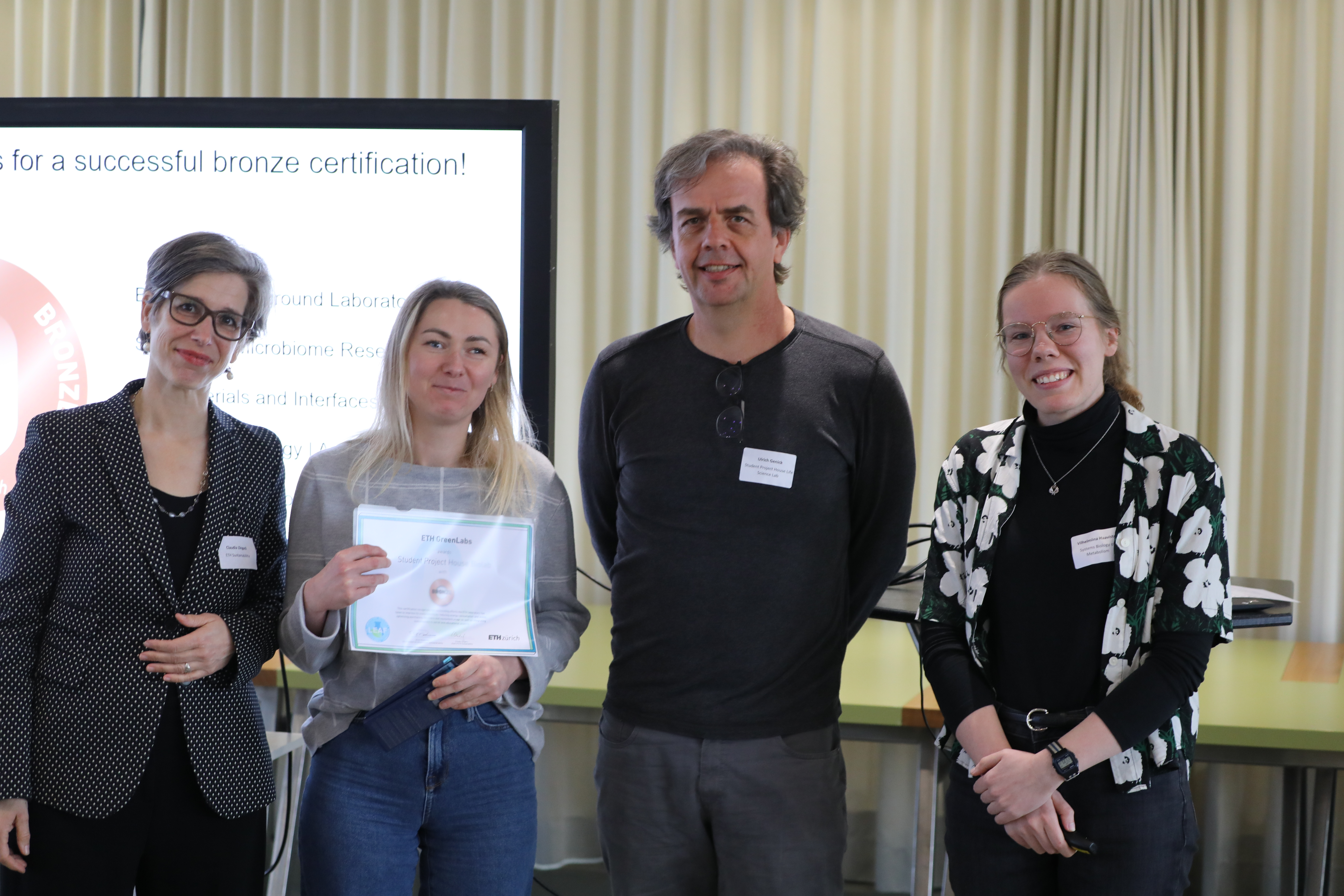
What’s the impact? More than just numbers
Some impacts were measurable. For example, by pooling our autoclave (sterilization) runs, we reduced energy use, and our textile and coffee collections diverted kilos of waste. But equally important was the cultural impact: many students and staff told us these small changes made them rethink their habits, from choosing plant-based milks to planning more mindful prototypes.
This matters because as an educational space, our biggest lever is shaping mindsets. We are confident that tomorrow’s engineers, designers and scientists will see sustainability as second nature and carry that thinking into far bigger projects.
Lessons we learned (and what’s next)
Not everything worked perfectly. Our experiment with recycling 3D printer filament taught us how eager students were to help but also how easily contamination can ruin a batch. Now we’re redesigning bins and training users right at the machines to keep recyclable streams clean.
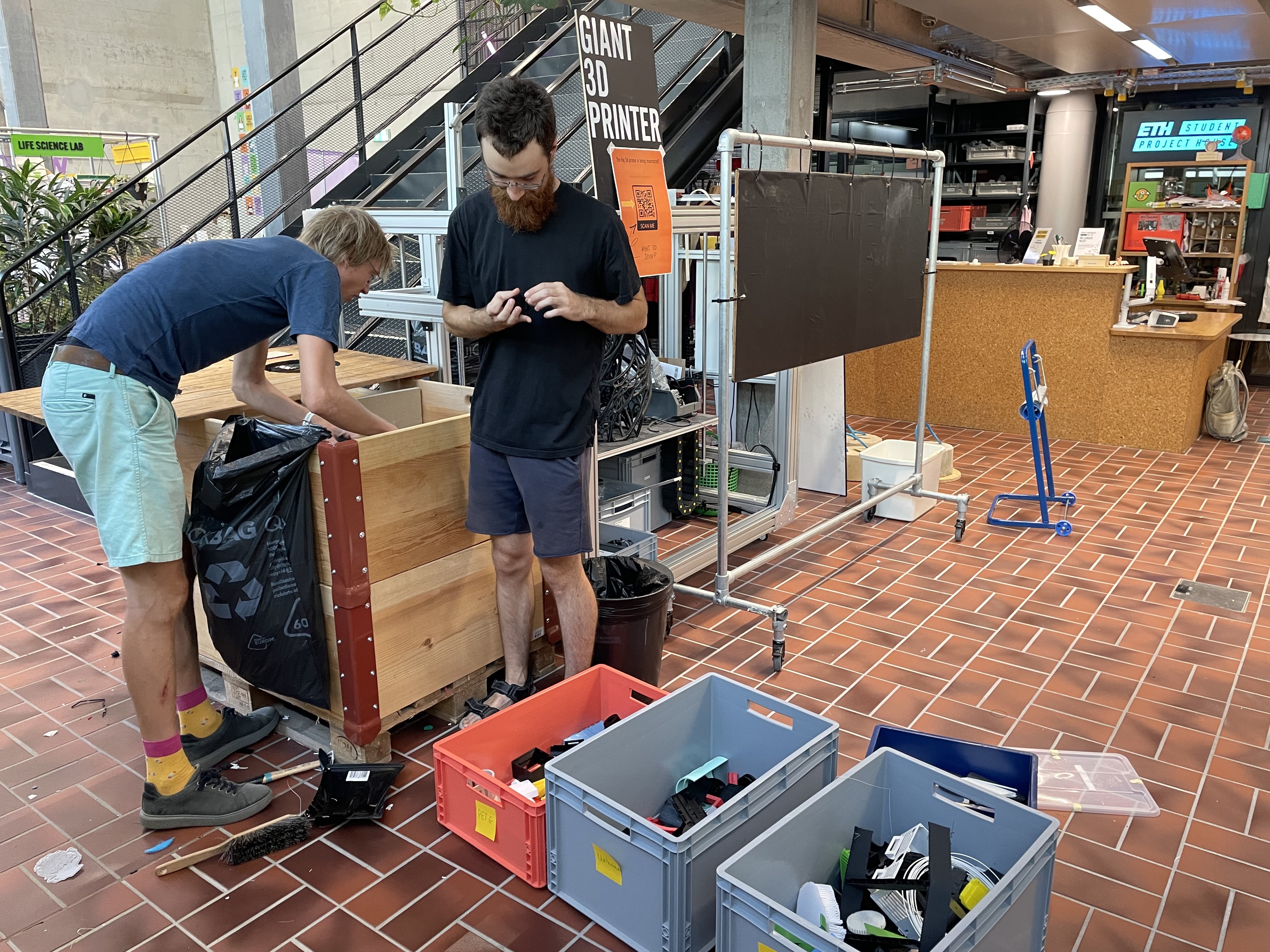
Looking ahead, we want to measure our impact more systematically and keep challenging ourselves to embed sustainability deeper into daily life. And we’re always on the hunt for new ideas.
Want to take the next step?
You don’t need a big plan to make a difference. Maybe you’re rethinking your next prototype, switching to reusable materials, or just curious how others are approaching sustainability, it all counts.
If you’re a student, here are two simple ways to get involved:
- Drop by the Makerspace: Learn a tool, join a workshop, or just explore how sustainability fits into hands-on making.
- Explore your curiosity: Not sure where to begin? We’ll help you discover what excites you in a supportive, empowering space.
- Start your own project: Got an idea with impact? We’ll help you get it off the ground with tools, support, and space to build.
Whether you're starting small or thinking big, these kinds of interventions can lead to real change. And we’d love to swap notes. Reach out at florence.gschwend@sph.ethz.ch. Let’s keep turning good intentions into action. 🌱
